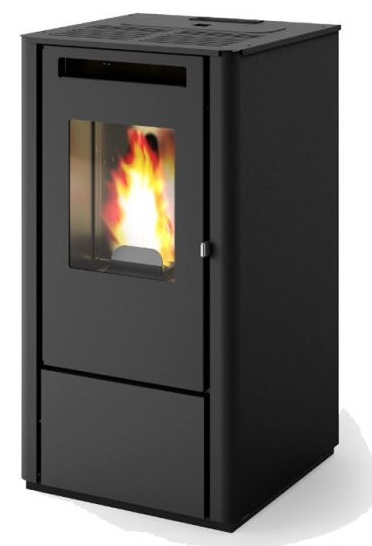Pellet Stove vs. Wood Burner: Which is Right for You: Wood burners and pellet stoves are the most eco-friendly and effective options available for alternative heating. Both provide coziness, atmosphere, and the allure of a real fire, but they work differently and have their own benefits and drawbacks. When choosing between the two, it’s critical to comprehend the distinctions in order to make a well-informed choice that suits your requirements and tastes.
Pellet Stove: Cutting Edge Performance
Modern technology produced pellet stoves, which are made to be both convenient and efficient. They carefully burn compressed wood pellets, which are generally produced from sawdust and other wood waste. When assessing a pellet stove, keep the following aspects in mind:
Efficiency: Pellet stoves have a great degree of efficiency; their ratings frequently surpass 80%. Compared to conventional wood burners, they require less maintenance because they burn pellets efficiently and produce little ash.
Convenience: Using a pellet stove is quite convenient. They frequently have thermostatic controls, programmable settings, and automated ignition, which make it simple to adjust the amount of heat produced. Furthermore, since pellets are packaged in bags, there’s no need to chop or store firewood.
Environmental Impact: Burning wood pellets emits carbon dioxide, although they are a reasonably environmentally beneficial option because the pellets are created from wood waste and sustainable wood sources. Furthermore, compared to wood burners, pellet stoves emit fewer pollutants and particulates.
Cost: Depending on variables like pellet prices and stove efficiency, the cost of running a pellet stove might change. On a per unit basis, pellets are often more expensive than firewood, although their efficiency frequently makes up for this cost difference.
Installation: Because the pellet feeder and fan in a pellet stove depend on electricity to function, they might not be appropriate for off-grid living. On the other hand, they provide flexible installation possibilities because they can be vented horizontally via an exterior wall.
Wood Burner: Classic Design
Homes have long benefited from wood burners, commonly referred to as wood stoves or wood-burning stoves, for their warmth and coziness. To create heat, they burn logs or seasoned firewood. When assessing a wood burner, take into account the following factors:
Ambience: Many people find the old, rustic atmosphere that wood burners provide to be appealing. Any space can seem comfortable with the crackling sound of burning wood and the sight of flashing flames.
Independence: Since wood burners don’t require energy to run, they’re a great option for off-grid residences and locations that frequently have power outages. Your wood burner will keep you warm as long as you have access to firewood.
Cost: Compared to alternative heating solutions, using a wood burner might be more affordable in places where fuel is plentiful and reasonably priced. However, the cost-effectiveness can change based on things like stove efficiency and local wood pricing.
Maintenance: In order to keep a wood burner operating well, it is necessary to clean the chimney, get rid of ash, and make sure there is enough air. Some people could find the routine of maintaining a wood fire enjoyable, while others might find the responsibilities of upkeep taxing.
Environmental Impact: When wood is burned, pollutants such as carbon dioxide are released into the sky. However, the environmental impact of wood burners can be reduced by utilizing firewood that is sourced responsibly and by using effective burning techniques.
Choosing the Option
The choice between a wood burner and a pellet stove ultimately comes down to your heating requirements, priorities, and way of life. A pellet stove can be the best option for you if efficiency, cleanliness, and convenience are important to you. However, a wood burner can be a better option for you if you value the classic elegance, independence, and atmosphere of a wood fire.
Think about things like fuel availability, upfront prices, running costs, maintenance needs, and environmental implications before making a choice. Furthermore, speaking with a qualified installation or heating specialist can offer insightful advice catered to your unique situation.
During the colder months, both wood burners and pellet stoves provide dependable and efficient heating options that can improve the coziness and comfort of your house. Thus, carefully consider your alternatives and relish the ambience and warmth of your selected heating appliance for many years to come.


